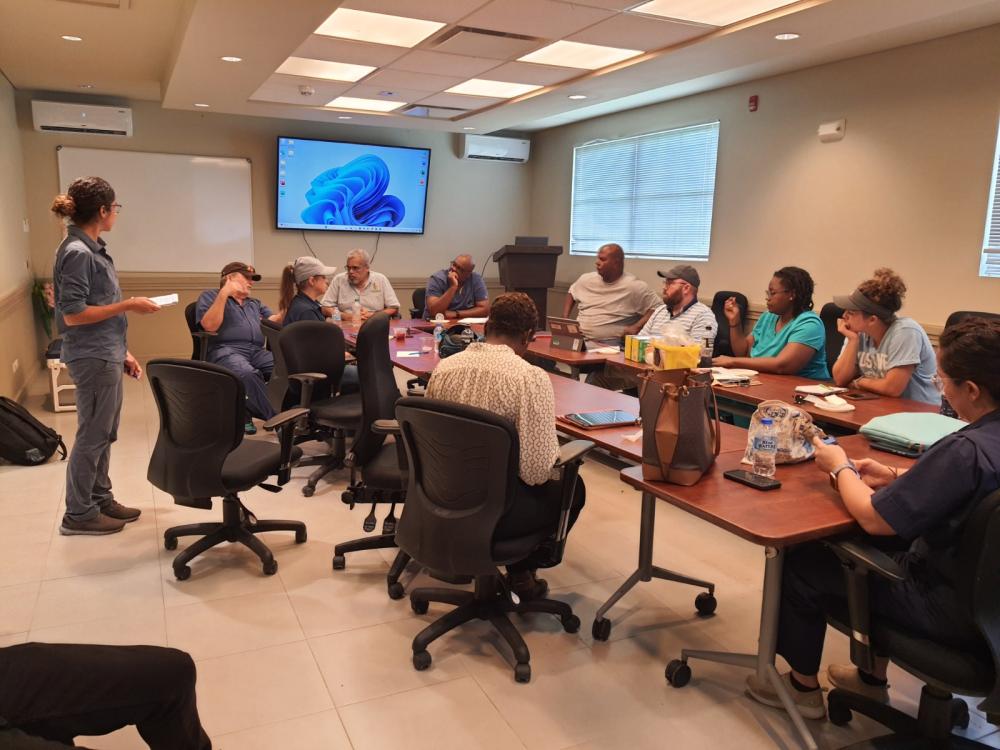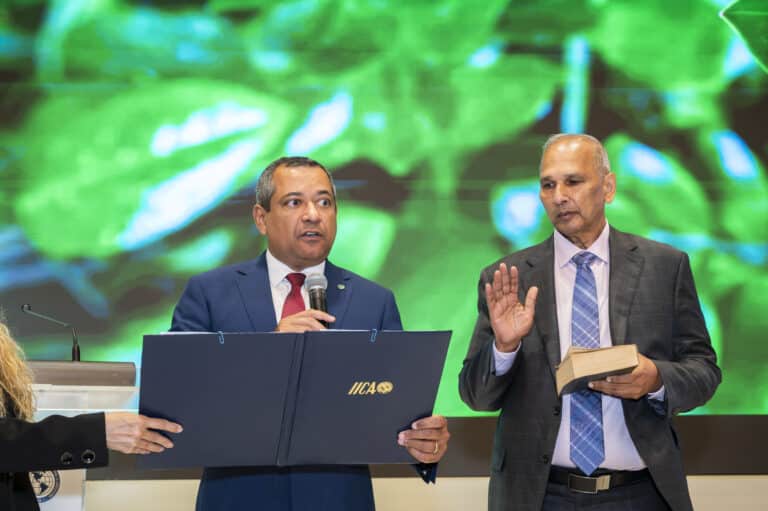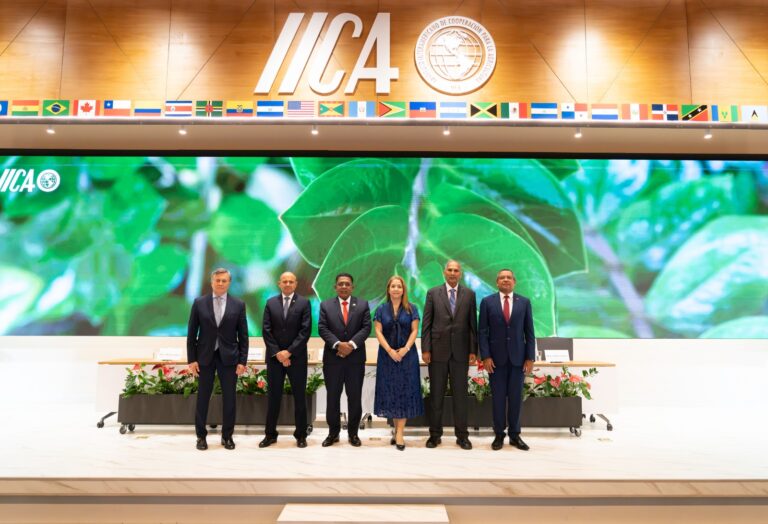During an intensive program of work, IICA and USDA experts collaborated closely with the Official Veterinary Service of the Ministry of Agriculture, Food and Nutrition Security of Barbados, and developed strategies and field activities aimed at preventing this viral disease in the country and the Caribbean region.

Barbados, 10 October 2024 (IICA) – A technical mission in Barbados from the United States Department of Agriculture (USDA) and the Inter-American Institute for Cooperation on Agriculture (IICA), under the USDA-IICA African Swine Fever (ASF) Capacity Building Project for Central America and the Caribbean, marked the beginning of field tests to strengthen local capacities for the surveillance and containment of ASF.
During an intensive program, experts from IICA and USDA worked closely with the Official Veterinary Service of the Ministry of Agriculture, Food, and Nutritional Security of Barbados, developing field strategies and activities aimed at preventing this viral disease in the country and the Caribbean region.
The work on the island included technical meetings and visits to pig farms, where samples were collected for early virus detection. This initiative is part of the USDA-IICA ASF Capacity Building Project for Central America and the Caribbean. It represents the first direct effort in Caribbean farms for the early detection of this highly contagious viral disease and sets the stage for future monitoring efforts in other participating countries.
IICA and USDA experts, alongside the Barbadian veterinary team, designed a national passive surveillance plan, which includes a regular sample collection schedule and farm and slaughterhouse monitoring to prevent potential outbreaks. One of the key outcomes of the mission was the formation of a technical team in Barbados prepared to begin early surveillance efforts.
The project is progressing, with Trinidad and Tobago and Guyana as the next Caribbean countries to be sampled. These countries were selected due to their proximity to Hispaniola, the island shared by Haiti and the Dominican Republic, where ASF is present.
The IICA and USDA-led project will participate in Agriculture Week in St. Vincent, where a workshop on ASF compensation and sanitary insurance will be held, and the results of the past year will be presented to CARICOM ministers and heads of veterinary services.
IICA and USDA also plan to launch the project in the Andean region in 2025, incorporating countries from that region as project beneficiaries. By the end of 2024, sampling is expected to be completed in three Caribbean countries, with surveillance plans developed and the project launch completed in the three beneficiary regions: Central America, the Andean region, and the Caribbean.
Institutional Support
Allister Glean, IICA’s representative in Barbados, emphasized the importance of this interinstitutional collaboration to effectively address ASF and announced the intention to strengthen working ties through technical training.
“We are committed to working hand-in-hand with the Official Veterinary Service of Barbados and local producers to strengthen prevention and surveillance measures, ensuring a coordinated and effective response to any eventuality,” stated Glean.
Eric Coleman, Director of Emergency Programs at the USDA’s Animal and Plant Health Inspection Service (APHIS) highlighted the institution’s allocation of resources to bolster emergency preparedness in Central America and the Caribbean related to ASF.
“This project leverages these resources to assist international partners and stakeholders in strengthening surveillance capabilities and preparedness plans to control swine hemorrhagic diseases, particularly ASF, which are spreading in the region and threatening pork producers and processors in the United States and across the Americas,” said Coleman.
The USDA’s Puerto Rican team, led by Fred Soltero, played a crucial role in training and supporting the officials of Barbados’ Official Veterinary Service, underscoring the importance of disease containment to prevent its spread to other Caribbean islands.
“The spread of ASF to other countries would pose a significant threat to the regional economy, and containment is essential to protect both producers and the region’s food security,” emphasized Soltero, a USDA veterinarian overseeing the Puerto Rico office.
Mark Trotman, Head of the Official Veterinary Service of the Ministry of Agriculture, Food, and Nutritional Security of Barbados, announced that the island’s team is better prepared to begin the surveillance stage and ready to apply the knowledge and experiences gained.
“The IICA-USDA technical mission in Barbados was the first effort in the new stage of the project, aimed at implementing a self-sustainable ASF surveillance system in the Caribbean, aligned with the One Health approach and international best practices in agricultural health,” said Ericka Calderón, IICA’s Agricultural Health Specialist and lead of the USDA-IICA ASF Capacity Building Project for Central America and the Caribbean.
More information:
Institutional Communication Division.
comunicacion.institucional@iica.int











